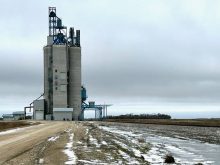Producers who have something to say about the merger of Bunge and Viterra have been given a platform.
The Manitoba Canola Growers Association is calling on its members to provide feedback on the deal. A survey has been launched by the group, based on questions from the Competition Bureau, the MCGA said in an Oct. 5 email to its membership.
The association has been “actively engaged with the Competition Bureau raising MCGA farmer members’ serious concerns about the potential merger,” it said in the same email.
Read Also

KAP flags risky trade for Manitoba farmers
Tariffs, market access uncertainty, trade diversification and export infrastructure top the agenda at Keystone Agricultural Producers (KAP) annual meeting.
Why it matters: The scope of the proposed joint company has caused concern about its impact on competition.
If it goes through, the deal would “substantially lessen competition among buyers and crushers, limiting farmer choice and potentially impacting price competitiveness,” the MCGA said.
“Directors have shared their concerns first-hand and MCGA has also forwarded investigators to multiple farm groups in Manitoba and across Canada to ensure all farmers’ concerns are heard.”
They’re not the only farm group to put the merger in their crosshairs.
On Oct. 3, four Saskatchewan ag organizations (Agricultural Producers Association of Saskatchewan, SaskCanola, Sask Wheat and SaskBarley) issued a joint statement on the issue. Leaders from the four groups sent a letter to their provincial agriculture minister, urging the Saskatchewan government to conduct a risk assessment of the proposed merger, the statement said.
The letter “emphasized the importance of creating a structured process for engaging with the farm community and listening to their concerns, describing it as both a valuable and timely undertaking,” according to the joint statement.
“The group believes that such an effort would be greatly appreciated by farmers and would contribute significantly to informed decision-making,” it added.
In July, the National Farmers Union criticized the deal in an op-ed published in the Co-operator. The NFU argued the deal would further consolidate an already highly consolidated sector.
“[Big grain buyers’] market power has so far not been restrained by Canada’s competition policy. Past mergers reviewed by the Competition Bureau have merely shifted assets between already powerful players,” Cathy Holtslander, director of research and policy with the NFU, wrote at the time.
The Glencore-owned Viterra is a dominant force in Canadian wheat, the NFU noted, while Bunge claims major weight in canola, soybeans and corn.
“Combining them gives one company massive market power over the largest crops grown in and exported by Canada,” said Holtslander.
The NFU called for the federal government to buy Viterra and form a new co-operative.
Under review
The Competition Bureau has said that it will review the merger.
If successful, the deal would create an agricultural trading titan worth about $34 billion, Reuters reported in June.
On Sept. 26, Canada’s minister of transport, Pablo Rodriguez, also said the federal transport department would review the proposed merger, including a public interest assessment to be completed by June 2, 2024.
“Both companies hold ownership interests in port terminals throughout our country. Healthy competition in the transportation sector is necessary to ensure fair pricing and access for users, especially for Canadian farmers,” Rodriguez said in a statement, later reported by Reuters.
The same article cited a Bunge spokesperson, who said the merger’s impact would have only positive effects on transportation.
“Our expectation that the transaction will close in mid-2024 remains unchanged,” the spokesperson added.
















